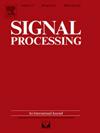Predictive modeling using Copula Particle Filter and Adaptive Network-Based Fuzzy Inference
IF 3.6
2区 工程技术
Q2 ENGINEERING, ELECTRICAL & ELECTRONIC
引用次数: 0
Abstract
This paper introduces a novel prediction algorithm, CPF-ANFIS, designed to overcome the challenges posed by high-dimensional input data in Adaptive Neuro-Fuzzy Inference Systems (ANFIS). ANFIS's performance deteriorates with increasing input dimensionality due to the distortion of its membership functions. To address this limitation, CPF-ANFIS leverages a two-stage approach: A Copula Particle Filter (CPF) for robust state estimation and ANFIS for nonlinear mapping. By incorporating copulas, CPF effectively addresses the impoverishment and degeneracy problems commonly encountered in traditional particle filters. This enhanced robustness allows for more accurate state estimation, which in turn improves the overall performance of the CPF-ANFIS algorithm. By decoupling state estimation from nonlinear modeling, CPF-ANFIS effectively mitigates the curse of dimensionality. The proposed method is evaluated on real-world applications, such as hybrid PV-wind systems and SLAM. Experimental results demonstrate that CPF-ANFIS consistently outperforms ANFIS and the Copula Particle Filter individually, as well as previously proposed methods such as ANFIS-PF, highlighting its effectiveness in achieving accurate predictions under challenging conditions. The results show that the CPF-ANFIS algorithm increases prediction accuracy by at least 5% compared to using each algorithm separately.
使用 Copula 粒子过滤器和基于自适应网络的模糊推理进行预测建模
本文介绍了一种新型预测算法 CPF-ANFIS,旨在克服自适应神经模糊推理系统(ANFIS)中高维输入数据带来的挑战。ANFIS 的性能会随着输入维度的增加而下降,这是因为其成员函数会发生扭曲。为解决这一局限性,CPF-ANFIS 采用了两阶段方法:用于稳健状态估计的 Copula 粒子过滤器(CPF)和用于非线性映射的 ANFIS。通过结合协方差,CPF 有效解决了传统粒子滤波器中常见的贫化和退化问题。这种增强的鲁棒性使状态估计更加准确,从而提高了 CPF-ANFIS 算法的整体性能。通过将状态估计与非线性建模解耦,CPF-ANFIS 有效地缓解了维度诅咒。我们在光伏-风能混合系统和 SLAM 等实际应用中对所提出的方法进行了评估。实验结果表明,CPF-ANFIS 的性能始终优于 ANFIS 和 Copula 粒子滤波器,也优于之前提出的 ANFIS-PF 等方法,突出了其在具有挑战性的条件下实现精确预测的有效性。结果表明,与单独使用每种算法相比,CPF-ANFIS 算法的预测准确率至少提高了 5%。
本文章由计算机程序翻译,如有差异,请以英文原文为准。
求助全文
约1分钟内获得全文
求助全文
来源期刊

Signal Processing
工程技术-工程:电子与电气
CiteScore
9.20
自引率
9.10%
发文量
309
审稿时长
41 days
期刊介绍:
Signal Processing incorporates all aspects of the theory and practice of signal processing. It features original research work, tutorial and review articles, and accounts of practical developments. It is intended for a rapid dissemination of knowledge and experience to engineers and scientists working in the research, development or practical application of signal processing.
Subject areas covered by the journal include: Signal Theory; Stochastic Processes; Detection and Estimation; Spectral Analysis; Filtering; Signal Processing Systems; Software Developments; Image Processing; Pattern Recognition; Optical Signal Processing; Digital Signal Processing; Multi-dimensional Signal Processing; Communication Signal Processing; Biomedical Signal Processing; Geophysical and Astrophysical Signal Processing; Earth Resources Signal Processing; Acoustic and Vibration Signal Processing; Data Processing; Remote Sensing; Signal Processing Technology; Radar Signal Processing; Sonar Signal Processing; Industrial Applications; New Applications.
 求助内容:
求助内容: 应助结果提醒方式:
应助结果提醒方式:


